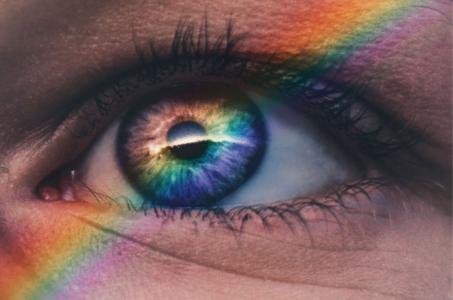A Call for Greater Understanding and Inclusion of Neurodivergent Perspectives
On a day in February, I reached out on Facebook for disabled individuals willing to discuss systemic ableism in Singapore. Soon, I received a notification from Melissa Ho, a neurodivergent writer who shared her concerns about the representation of autism in Singaporean news. Though she lacked the time to explore the topic herself, she offered her research as a valuable starting point for my writing.
Initially, I hesitated to tackle the subject as an allistic (non-autistic) individual, fearing I wouldn’t fully grasp the nuances of the ableism faced by autistic people. However, as Ho pointed out, given the stigma surrounding autism in Singapore, “we could be waiting a very long time” for an openly autistic journalist to address this issue.
Understanding Autism Beyond Stereotypes
While Ho’s research laid the groundwork for this article, it was crucial for me to engage directly with autistic individuals to gain deeper insights. One such interaction was with autistic researcher and multimedia artist Dr. Dawn-Joy Leong. In her 2018 TEDx Talk, Dr. Leong described autism as “a difference of neurological function,” highlighting the vibrant diversity of the autistic experience rather than viewing it through a medicalized lens.
Dr. Leong emphasized the harm of perceiving autism solely as a medical condition: “‘You are not your autism’ is as insulting as telling someone ‘you are not your brain.’” Autism is increasingly recognized as a form of neurodivergence, and the narrative surrounding it is shifting, thanks in part to advocacy from individuals like Wesley Loh.
Organizations in Singapore are beginning to align with these progressive views. In celebration of Autism Awareness Month in April, the Autism Network Singapore shared a graphic on Facebook stating, “[Autistics] are not disabled by autism. We just perceive the world differently.”
The State of Autism Representation in Media
Despite these positive developments, mainstream media representation of autism in Singapore remains inadequate. Many media professionals, like most of society, are neurotypical and allistic. While Dr. Leong and music producer Muhammad Arshad Fawwaz shared positive experiences with media crews, they acknowledged that these experiences are not universal.
Many autistic individuals expressed concerns about how media portrayals often depict them as charity cases or “overcomers” of autism, while those with fewer support needs are frequently overlooked. Eric Chen, an IT specialist and owner of iautistic, noted that local media often emphasizes the burdens of autism on caregivers over the perspectives of autistics themselves.
A recent example of problematic representation is Channel News Asia’s documentary, Wired Differently, which portrays an autistic child, Andric, in a negative light, describing him as someone who “saps [his mother’s] energy.” The framing of autism in this context perpetuates misunderstandings and stigma.
The Importance of Listening to Autistic Voices
To challenge these prevailing narratives, it is essential for media outlets to include autistic voices in their writing. My assumptions about autism were challenged during my interview with the non-speaking autistic poet known as fifi coo. Despite communicating through an alphabet board, fifi’s responses were insightful and eloquent, countering my preconceived notions about the limitations of non-speaking autistics.
Rachel Chen, a PhD student in Special Education at UC Berkeley, observed a paradigm shift towards pro-neurodiversity perspectives in the US, where personal accounts by autistic individuals provide counter-narratives to common ideologies. This highlights the need for Singaporean media to engage with and amplify autistic voices.
The Need for Ethical Journalism
Beyond representation, there are ethical considerations for journalists working with autistic individuals. Eric Chen warned that mishandling information can have serious consequences for autistic advocates. Many media outlets do not require journalists to seek approval from interviewees regarding the accuracy of their quotes, which can lead to misrepresentation.
Xie Yihui, a disabled journalist, emphasizes the importance of transparency in reporting and the need for journalists to engage responsibly with their subjects. This is echoed by autistic individuals who feel misrepresented by mainstream media.
Towards Allyship in Journalism
Improving autism representation in Singaporean media requires commitment from journalists to respect and amplify the voices of autistic individuals. As Chan Shu Yin, an autistic psychotherapist, suggests, media should highlight the strengths and positive aspects of autism rather than focusing solely on perceived deficits.
This shift in narrative is essential for dismantling stigma and fostering understanding. Ultimately, the responsibility lies with media professionals to advocate for and support the autistic community, creating a more inclusive and accurate representation of their experiences.
In doing so, journalists can help pave the way for a society that values diversity and acknowledges the richness of neurodivergent perspectives.








